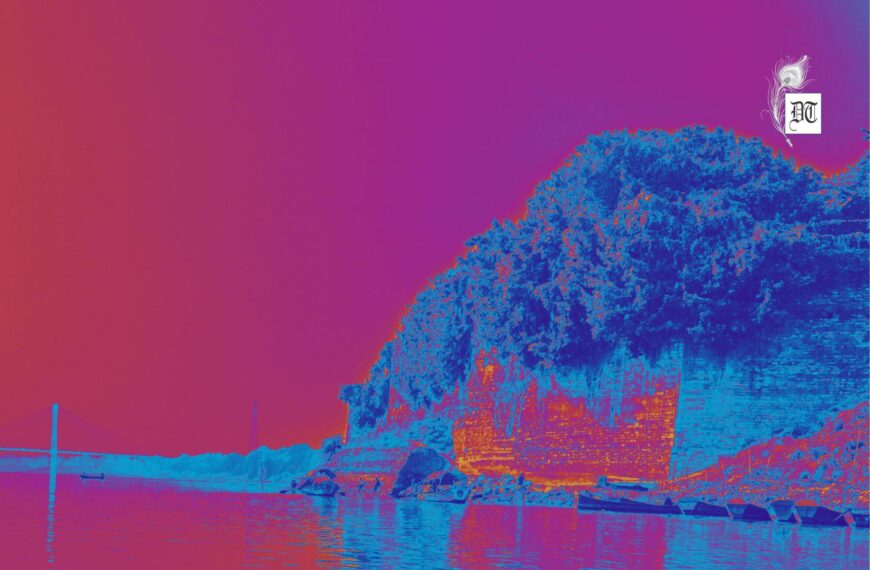Elimination of the culture of silence, fear and phobia of organised violence and torture are the predominant factors of resilience to inculcate social transformation. It contributes in poverty elimination. The stories of Sarai and Sakara villages are the classical examples of how change happens. Here’s a special report by Shirin. It’s a part of the Different Truths and PVCHR awareness drive in eradicating bonded labour.
Elimination of the culture of silence, fear and phobia of organised violence and torture are the predominant factors of resilience to inculcate social transformation. It contributes in poverty elimination. The stories of Sarai and Sakara villages are the classical examples of how change happens. Here’s a special report by Shirin. It’s a part of the Different Truths and PVCHR awareness drive in eradicating bonded labour.
This development was possible due to the continuous engagement of the community and Peoples’ Vigilance Committee on Human Rights (PVCHR), with timely implementation of the strategy. They sat together and decided to bring the complaint before the open hearing on atrocities against Scheduled Castes (SC), organised by the National Human Rights Commission (NHRC), in Varanasi, on November 25-26, 2013. They lodged complaint with the commission, according to the minutes of the folk school, community meetings and individual testimonies.
Perhaps for the first time, the Musahars, with full confidence and without any fear, narrated their suffering to the two presiding officers of the open hearing. They had regained their lost voice and their collective identity.
“For the first time, I felt honoured, when Badaka Sahab (senior officer) listened to my testimony very carefully,” said Mutana, a community leader. Their new found confidence reminded me of the day when few bonded labours (Ram Dayal and others), from this village, came to the PVCHR office, along with Mangla Prasad, a senior field activist. They were frightened, withdrawn into a shell and were unable to share their sufferings, the incidents of torture and organised violence. Now, after two-and- a-half years they were healed and transformed into human rights defenders. They were fearless and ready to face and confront their perpetrators. They were in a better position to reclaim, re-negotiate, and win back their rights.
In fact, psychosocial rehabilitation system (PRS) exhibited principles of hope, change and recovery. Psychological rehabilitation of the survivor led to a certain degree of restoration of the physical and mental states of wellbeing. This opened the possibility of his/her participation in the community movement and ultimately they transformed into human rights defenders.
“Sarai is a successful example of the sandwich model of our initiative. On one hand, at the grassroots level, breaking the culture of silence and eliminating the fear through psycho-social and, on the other hand, the legal support and pressure from ground and above on the administration and state government by NHRC, the Supreme Court, national and international players was the strategy. If social movements support the most marginalised people on grassroots and NRIs of this country become empathetic for the rights of most marginalised then you have model like Sarai village,” says Lenin Raghuvanshi, founder and CEO of PVCHR.
PVCHR and DIGNITY initiative adopted Sarai village as torture free model village, in 2010. A village constructing a new culture, which is driven by knowledge and spirit to deal effectively with any human rights violations and prevent any potential unrest by cultivating embracing attitudes. The community people are now speaking more gently and respectfully with each other. The community leaders have started taking the initiative of organising the community meetings. During the meetings, they are mindful of resolving disputes and resolving conflicts within their communities. They are trying their best to manage their problems. On the whole, the people’s fear of the police has greatly decreased.
Observation of Behavioural Changes of Police in the Pre and Post Intervention Phase
| Before | After |
| Afraid of going to the any police station. They thought that they would be punished and cops would arrest them and put them behind the bars. Even if they could enter were not entitled of any attention. | Now, without any fear they go to police station to file complains. The cops too speak to them in a good manner. |
| They were caught and made to clean the floor of the police station without any wages in return. | Now getting wages to clean the police station or doing disposal of the dead body. |
| Not aware about the D. K. Basu guidelines. | The guidelines of D. K. Basu committee are being followed though not fully. |
| People did not know about the phone number “100”. | People are now aware how to dial 100 on telephone and when to dial. They dial 100 and tell their problem that calls police on the spot. |
| Earlier the behaviour of policemen was very bad towards women and children. Cops used enter homes without information or knocking and used to push women with canes and abuse them. The children were abused were asked to tell about their parents. | There is a shift in the attitude of the police. The cops now speak softly and show respect towards women. The police now provide them space to sit and ask them to narrate their problems. |
| Police used to register false cases. | Now, there are much lesser instances of false cases |
The Musahar ghetto of Sarai village is bonded labour and torture free labour village. PVCHR sent a letter to the Commissioner of Varanasi to declare it as Torture and Bonded Labour free model village and is planning to fix freedom monument with the declaration against torture and organised violence (TOV). On the complaint of Lenin, dated January 2016, the Sub-Divisional Magistrate, Pindra, in its letter No.88/17-vividh- T.M.C.(Ayog) – 2016, dated March 21, 2016, stated that there is no bonded labour in Lakshirampur, Aswari, Hamirapur block of Badagaon block and Nehiya, Bhatwari khurd, Sarai Musahar Basti, Pindra block, Varanasi district.
This was possible due to the tireless process and community’s aspiration for change. The community people decided not work as bonded labour in any establishment and were working under MNREGA Scheme. The community understood the importance of education and now they have enrolled their children in government primary school, near their ghetto. Bablu said, “Our younger brother and sister faced discriminations in the school but after the intervention, they got uniform and are getting the same behaviour, like other children, Anganwadi is providing nutritious diet and ANM is regularly visiting our ghetto for immunisation”.
Mahavir, a community leader, stated, “Our self-respect increased, when people from different places come to visit our places. For the first time, government officials are coming to visit our ghetto. Before that no one visited us. We also have our own identity card as our dignity. Children got their birth registration certificate and for voter ID cards. In the absence of these identity cards, even the most basic rights sometimes get trespassed, resulting in exploitation and discrimination, and even violence.”
It was not easy for them to attain their dignity and identity, as they were incessantly obstructed by the village head, Jagdish Patel, in the implementation of various schemes. The Patel community in that area has enmity with Musahar because Mahavir Mushar married a Patel girl. To bridge the gap between the two communities PVCHR organized a Neo-Dalit movement, as a cultural night followed by dinner. This helped build camaraderie and sink bitterness.
“Now, the community leaders are monitoring all the schemes. We are inculcating knowledge and skills, through continuous capacity building workshops on various acts and guidelines, and participation in various programmes. The people from different communities are coming to this ghetto and seeking help from us,” said Shiv Pratap Chaubey, Model Block Co-ordinator, Pindra Block.
Inspite of being beneficiaries of various government schemes, the community is facing sustainable economic crises due to which these people are migrating to work on another brick kiln, as they are continuously not getting work on MNREGA and have other livelihood options. As they only own the expertise of making leaves plates and bricks, even though they did not have agricultural land. PVCHR intervened in this matter and wrote letter to the NHRC, National Schedule Caste Commission, District Magistrate, Commissioner of Varanasi, etc. with request of imparting training and capacity building workshop for skill development and for providing more livelihood options. Allotment of land for kitchen garden too was achieved.
Recently, Fr. Bernardo Cervellera, Director of Asia News and 31 other people from Italy, visited Musahar ghetto Sarai village of Pindra, Varanasi as tribute honour to heroic nonviolence fight of Musahar people. Fr. Cervellera says, in his email, “My desire is to show to these people not only monuments, but special witnesses of contemporary India. Nirmala, our correspondent from Mumbai, told me that we could have a meeting and a talk with you and you could take us to a Dalit village”
The success of Sarai village achieved by the people of Sarai is creating waves in the struggle against poverty, injustice, caste system and torture and organised violence, as a slogan: ‘You Can!’
©Shirin Shabana Khan
Pix sourced by author.
Shirin Shabana Khan is professional social workers, graduated and post graduated in social work. She joined Peoples’ Vigilance committee on Human Rights (PVCHR)/Jan Mitra Nyas (JMN) in 2007 during the time when organization was transforming from activist to professional organization. She committed her life for the social cause after coming in close connection with the problem faced by the marginalized section in the society. Now she is program Director of the organization and leading the initiative “Healing and Empowering marginalized communities in India” with specific focus on creating torture free model villages.







 By
By

